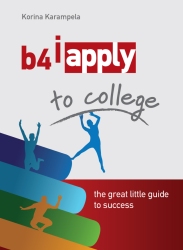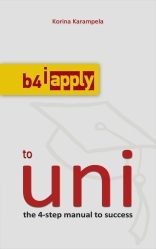Korina Karampela talks to Rachel Johnson – the General Manager of notgoingtouni.co.uk – about what options are available to those who don’t think the university route is the right one for them.
- The number of pupils who has second thoughts about going to university is on the rise. What other options do they have?
There are some fantastic options out there including apprenticeships, sponsored degrees, foundation degrees, diplomas, national vocational qualifications (NVQs), gap years, volunteering, distance learning or even going straight into entry level jobs.
- What is the most common misconception that people have about these alternative routes?
I think a lot of people – pupils, parents and teachers – think that particularly apprenticeships are only for those who can’t get the grades to get into university. In fact, higher apprenticeships are an equivalent to a degree qualification – you are simply getting there via a different route. Large blue chip employers in particular are beginning to recognize the need to acquire the talent of the future both at a school leaver level as well as graduates because they see more students look for other options than the university route due to fees and unemployment rates. The number of new school leaver specific programmes is increasing all the time.
- If you were able to make one change to improve the quality of careers advice and guidance at schools, what would it be?
I’d like to see schools focusing on helping pupils to find what route suits them best to fulfill their career aspirations instead of focusing on achieving their targets on getting pupils to university even when it is not the right option for them. For this change to happen, schools need to get aware of what alternative options are available and unfortunately this knowledge varies across schools.
- What are 3 ‘Dos’ and 3 ‘Don’ts’ young people who are uncertain about going to university need to be aware of?
The Do’s are:
- Do as much research as possible into all your options. You can find a lot of information at the notgoingtouni website.
- Do ask yourself the following questions: a) What do you enjoy doing? b) What career would you like to have? c) Is full-time education for you? d) Is the cost of university worth it? e) Are there alternative ways that will enable you to achieve your career objectives?
- Do use the people around you for advice. Bounce ideas with friends, parents and teachers. Remember though that this is ultimately your decision.
The Don’ts are:
- Don’t be swayed in your decision by peer pressure – it’s your life and you need to base your decision on what will give you the most successful outcome.
- Don’t take the easy option unless it is the right one for you.
- Don’t wait until the last minute to apply for the route you want.
The bottom line: University is not the right option for everybody. If it is not for you, don’t despair. There are other options available to help you achieve your career aspirations. Explore them.
Korina Karampela is the founder of b4iapply, author of 2 books, consultant and speaker. She has worked in senior positions in the pharmaceutical industry for 12 years and has an MBA from MIT Sloan. Her b4iapply blog is recommended by The Guardian for professional development.





As much as I agree with most of what is said here in general people with degrees will earn more than those without. In addition with a more competitive economy and the globalization of markets you must do whatever you can to differentiate yourself and a college degree will be one of those things.
I am glad you raised these points Vipan. I completely agree with you about the importance of finding ways to differentiate ourselves in this competitive economy. Another important fact though to consider is the high dropout rates (35% in non-profit private colleges, 45% in public colleges and even higher in private for-profit schools). As a result, young people need to understand what options are available to them and the trade-offs associated with each of them before making a decision.